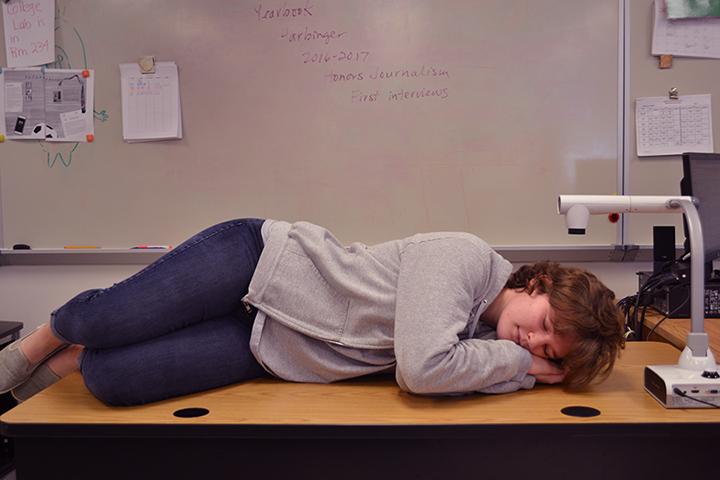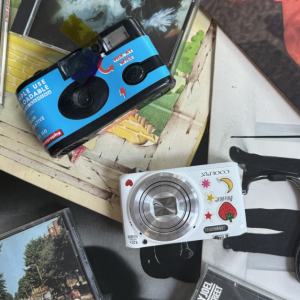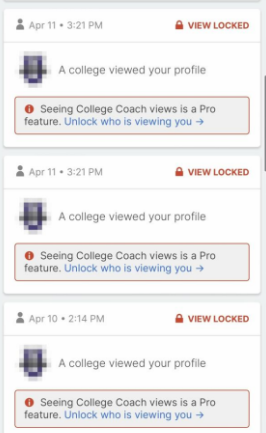Emma’s Dilemma: I didn’t get very much sleep last night
Emma Coleman (’17) catches some Z’s during a spare moment in Advanced Journalism. The need for sleep is a common symptom of senioritis.
October 4, 2016
The doctor left the room for a moment, to go process my test. The paper I was sitting on was crumpled and ripped from my squirming. I was terrified that I already knew the awful truth, and I didn’t want to hear the doctor say it.
He entered the room, stethoscope, white jacket and all. He was holding my test results in his hand. He sighed.
“I have bad news for you,” he said. “You have senioritis.”
Senioritis, according to Nurse Leslie Perry, is defined as “lethargy, lack of attention to detail, looking to the future but having no idea what you’re doing right now,” and “mental fog.”
Symptoms, though subjective, primarily include but are not limited to whining. “I’m tired,” “I don’t want to be in class right now,” and “I didn’t get very much sleep last night” are widespread complaints. The tendency or desire to skip classes is also common, even in straight-A students.
I almost laughed when I heard that I was infected. I had seen it coming, but I didn’t think the diagnosis would come so soon. Other high school seniors typically start having symptoms once their college applications are sent out, experiencing more severe symptoms in the spring after receiving acceptance letters and taking AP exams.
But that’s not what happened to me. The doctor told me that my infection is abnormal. I’m an early bloomer … rather, wilter.
The sickness hit me the first day of senior year. I suddenly became allergic to waking up early, to being prepared for class, to finishing all of my homework. My reaction flares up every time someone mentions the new grading policy. I didn’t want to do anything. No work, no studying, no taking notes in class. It all made me drowsy and gave me a headache.
What was I to do? It was only August and I was already suffering with an addiction to laziness.
Perry noted that because senioritis is a mental sickness that varies from patient to patient, the best prescription is a simple college chat.
“I’ll ask them where they’re applying, or what they’re thinking about doing, or if they have any particular interests,” Perry said. “Sometimes if you just get them thinking about their future, they’re not thinking about how sick they are.”
Should such therapy fail to relieve a patient’s symptoms, a pep talk may suffice. It encourages patients to hear, “This is your job. This is what you need to do. Go and do it.” When a patient is given a specific job or purpose, he or she may feel more willing to participate in class and make an effort to actually learn something.
We’re into October now, and I still feel fatigued and lazy at times. But I’ve learned how to give myself therapy and pep talks. I tell myself, “This is your job. And you’ll never get a job as easy as this once you quit this one, so you’d better enjoy the moment and do the best job you can.”
Maybe that makes me sound like I’ve got a screw loose, but it’s what keeps me going.







